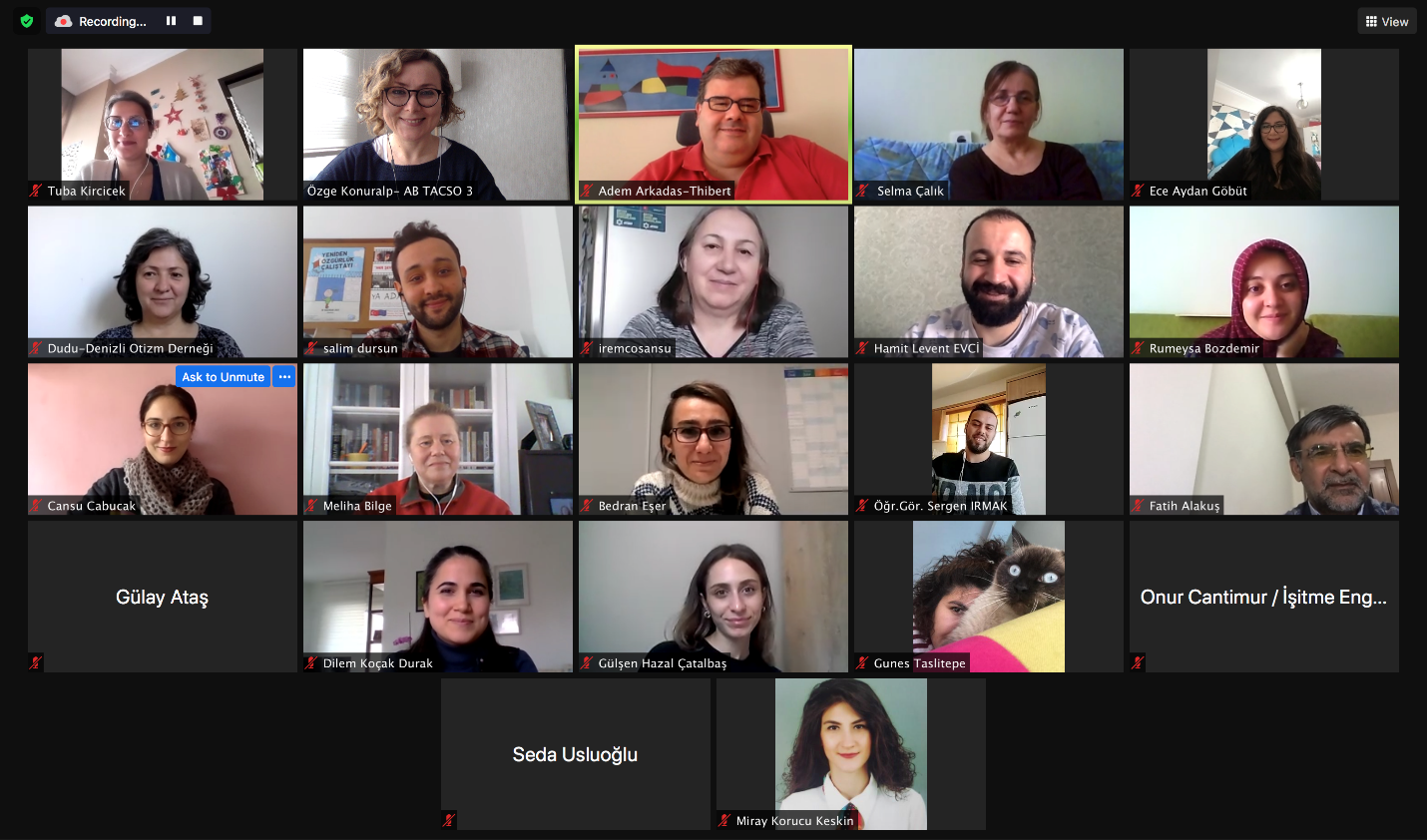
Children’s Rights and Principles of Child Participation Training for the civil society organisations in Turkey was organised online in February and March to promote children’s rights in the work of CSOs as well as child-led organisations* and children in general. The training programme has consisted of two distinct training programmes: A training programme targeting CSOs whose main focus is children’s rights and/or working with children, including CSOs particularly working in the field of humanitarian aid, seasonal agricultural workers, refugees and Roma population and a training programme targeting child-led organisations and children in general. Children’s Rights and Principles of Child Participation Training Programme is envisaged to be implemented to the end that providing practical guidance to CSOs and child-led organisations to adopt, implement and secure children’s rights in their works.
The training programme has gathered various CSOs, CSO networks, local CSOs and grassroots organisations as well as child-led organisations and children from Turkey during February. Within the scope of the training programme, a two-day training course was held on 4 and 5 February. The practical work “homework” activity and a follow-up meeting with the participation of the guest speakers was carried out on 18 and 19 February. Children from various CSOs joined the last session of the training programme organised on 4 and 5 March 2021.
“Now, in this training, we are using our right to participate!”, said one child.
“Children should be able to participate in all decisions that concern them”, said another.
The training programme not only focused on providing background information on children’s rights, international conventions and existing national legal framework but also made a first in discussing the principles and fundamental steps of child participation together with CSOs whose main focus are children’s rights or working with children as well as child-led organisations and children. At the end of the training programme the training participants emphasized that adopting a participatory approach and ensuring the inclusion of children in CSO activities needs a significant mental transformation and reconsideration of the terms “adulthood” and “childhood”.
During the evaluation session of the training programme training participants expressed that the training programme was illuminating in terms of discussing children’s rights with a new, innovative and participatory approach and thinking about child participation and children’s rights are not only about child participation, but also about adopting a participatory approach and internalising the principle of “participation” in every work of CSOs.
The last session of the training programme was organised on 4 and 5 March with the participation of children from various CSOs as well as unorganized children. During the training programme children and participants, both discussed the logic behind each article of the Convention on the Rights of the Child and what should be the steps and principles of child participation to ensure effective inclusion of children into the work of CSOs and to the decision-making mechanisms.
Some of the participant children articulated that children should be able to participate in all decisions concerning them and underlined that it is not possible to talk about participation where only adults talk about children. They emphasized that now in this training, they are using our right to participate and discussing the principles and necessary steps of participation have provided an added value for them.

Note: The visual in this post represents a simplified version of the Convention on the Rights of the Child and it is part of the work of the Child participation studies of International Children’s Centre.
Comprehensive guide on children’s rights and principles of child participation
*“Child-led organisations” is largely understood as ‘any organisation with members below 18 years old’ depending on the “child” definition of the Convention on the Rights of the Child. On the other hand, “child- or youth-led participation” is identified in the UNICEF’s Tool for “Children’s Participation in the Work of National Human Rights Organisations (NHRIs)” as a notion in which children are provided with the space and opportunity to initiate their own activities and carry out advocacy (https://www.unicef.org/eca/sites/unicef.org.eca/files/2019-02/NHRI_Participation.pdf). Although, in Turkey, children’s freedom of association is guaranteed by the amendment in the 3rd Article of the Law of Associations, in practice, children cannot be able to make use of their rights due to structural barriers, such as they are obliged to obey external factors (family, custodians) (https://www.tusev.org.tr/usrfiles/files/orgutlenme_rapor_web_(1).pdf). Thus, apart from its literary definition, “child-led organisations”, in this ToR, child-led organization is considered any CSOs (including non-legal entities, initiatives as well as children councils of municipalities/ministries) which is initiated or run through the participation of child(ren).
